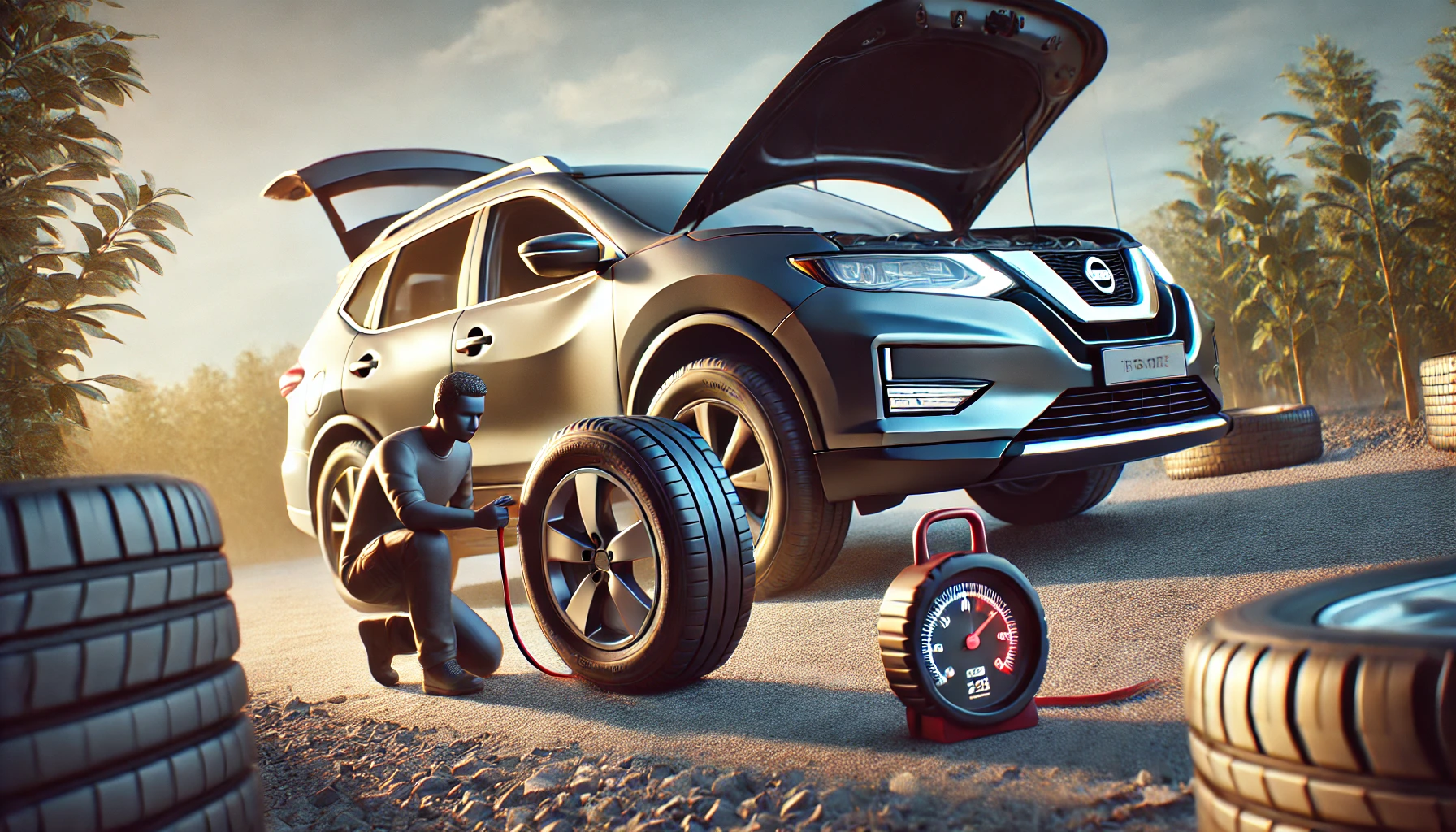
Common Causes of a Tire Pressure Sensor Fault in Nissan Rogue
If your Nissan Rogue is displaying a tire pressure sensor warning, these are the typical causes:
1. Low Tire Pressure
Low air pressure in one or more tires is the most common cause of the TPMS light turning on. Even a slight drop can activate the sensor.
2. Faulty TPMS Sensors
TPMS sensors typically last 5-7 years. After that, the battery in the sensors may die, or the sensor itself might malfunction, leading to a false warning.
3. Tire Rotation or Replacement
If you’ve recently changed or rotated the tires, the TPMS system may need recalibration. New or relocated sensors might take some time to communicate correctly with the vehicle’s system.
4. Temperature Changes
Sudden drops in temperature, especially in colder climates, can reduce tire pressure, triggering the TPMS light. Cold air causes the air inside the tires to contract, which reduces pressure.
5. Communication Issues with the ECU
Sometimes, the TPMS sensors may not communicate effectively with the car’s onboard system, requiring a reset or diagnosis by a mechanic.
How to Fix the Tire Pressure Sensor Warning on a Nissan Rogue
1. Check Tire Pressure Manually
Use a tire pressure gauge to check each tire and ensure they are inflated to the correct pressure (usually 33-36 PSI for the Rogue). Once adjusted, drive for a few minutes, and the TPMS light should turn off.
2. Reset the TPMS
To reset the TPMS in your Nissan Rogue:
- Turn the ignition to the “ON” position without starting the engine.
- Hold the TPMS reset button (often found under the dashboard) until the warning light blinks three times.
- Drive for 10-20 minutes at 25-30 mph to allow the sensors to recalibrate.
3. Replace Faulty Sensors
If resetting doesn’t help, a faulty TPMS sensor might need replacing. A mechanic can identify the malfunctioning sensor using a diagnostic tool.
4. Visit a Mechanic
If none of these steps resolve the issue, it’s best to visit a Nissan dealership or a trusted mechanic. They will run a diagnostic test to find any hidden issues with the TPMS system.
Preventing Future TPMS Issues
- Regularly check tire pressure, especially during extreme weather conditions or before long trips.
- Make sure to have the TPMS sensors checked during routine maintenance or tire service.
- Replace TPMS sensors every 5-7 years to prevent sudden failures.
